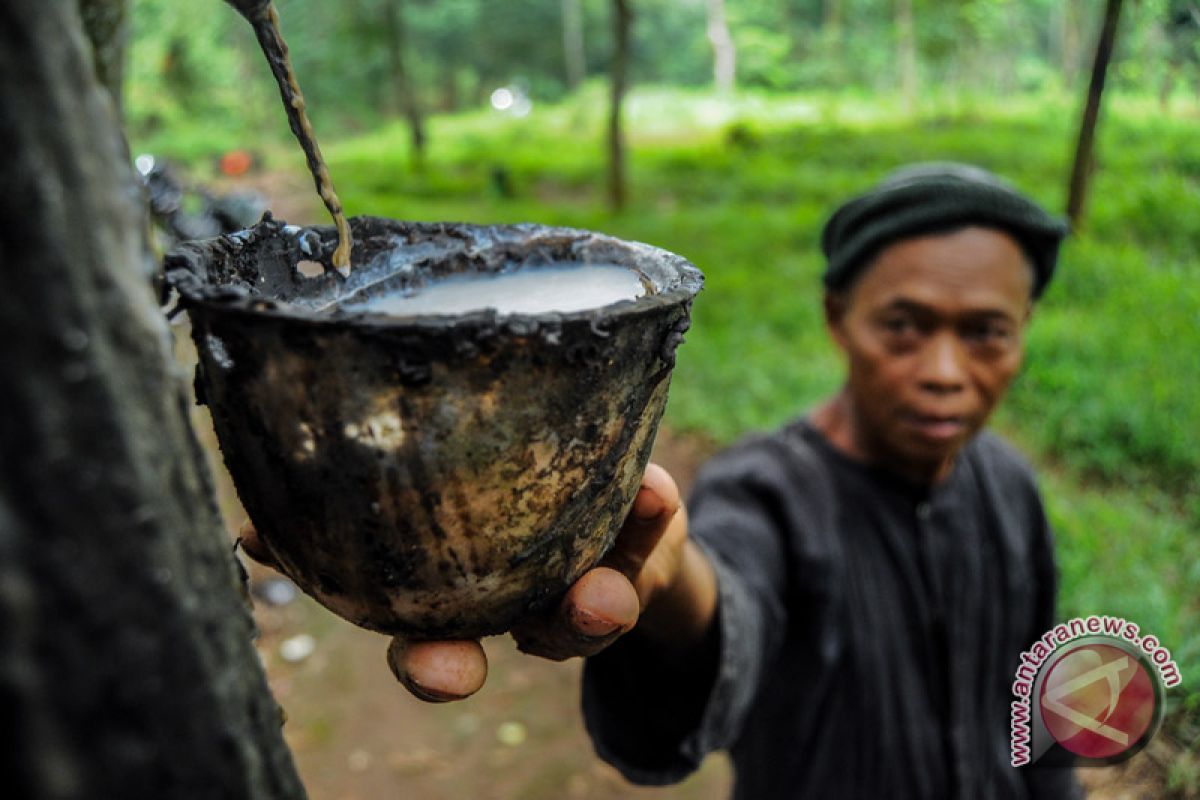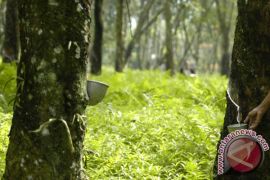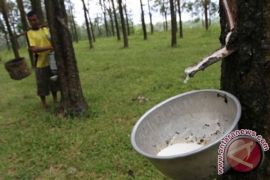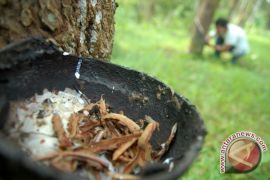The price of natural rubber has been gradually decreasing throughout this year. Data from Bloomberg, as of July 27, showed that technically specified rubber (TSR) was traded at US$1.33 per kilogram (kg), a 9.5 percent decline year-to-date.
The data also indicated that future prices for both commodities will remain under pressure for the rest of 2018. TSR`s future price is around $1.30 to $1.40 per kg, while RSS is around $1.40 to $1.60 per kg.
A decline in the prices of export commodities over a lengthy period of over four years has led farmers, relying on rubber plantations for their family income, to encounter financial difficulties.
During financial crisis, it encourages farmers to conduct various activities that can provide additional income that, of course, is right and does not violate the law.
A side business
To get around such difficult conditions to ensure a decent life with their families, farmers in Musi Banyuasin District, which is one of the largest rubber-producing regions in South Sumatra, have begun a side business by utilizing the home gardening land.
Hundreds of farmers on Serasan Sekate`s Earth are utilizing a home yard to build a side business of cultivating freshwater fish to deal with the plummeting prices of rubber and palm oil.
Suwardi, a farmer in Suka Maju Village, Babat Supat Sub-district, Musi Banyuasin, explained that he and his colleagues were attempting to start a side business.
"Right now, the price of rubber has plummeted. Hence, if you do not have a side business, you cannot properly fulfill your needs," he noted.
So far, the farmers have focused on managing rubber plantations that provide substantial results and decent livelihoods.
With the drop in the prices of rubber, a mainstay as a source of family livelihood, Suwardi is collaborating with farmers in his area to start a side business by utilizing the existing fields in the front and side of the house.
A suitable business that can be developed is the cultivation of freshwater fish. The choice to develop a side business is now yielding encouraging results and helping to overcome the financial problems faced by families.
Fish farming activities have been developed by Suka Maju Village farmers by making plastic ponds and tarpaulins for those not having a large land area and for those having large land to make ponds by digging the soil.
The fish cultivated by farmers is currently limited or adapted to the various demands of the community, such as catfish, tilapia, and catfish.
The farmer`s side business can produce around three to five tons of fish a week and be able to meet the needs of the community in several villages in the Babat Supat Sub-district and several other districts.
With the existence of a side business, the drop in rubber prices is no longer a problem, as the cost of living can be overcome with the resulting fish sales.
Farmers in this village can get around Rp1 million every week from the sale of fish that can be utilized to meet their daily needs and finance their children`s education to reach the higher level, the rubber farmer stated.
Make Asphalt Mixture
In addition to encouraging creative farmers to tackle the plummeting rubber prices and still earn an income to meet their family needs and cover the costs of their children`s education, the Government of Musi Banyuasin Regency is making asphalt rubber mixture.
The Government of Musi Banyuasin District, South Sumatra, uses community rubber, which has plummeted in recent years, to pave roads in local districts.
Musi Banyuasin District Head Dodi Reza Alex Noerdin inaugurated the launch of a 465-meter rubber asphalt therapy test in Mulyo Rejo Village (B4), Sungai Lilin Sub-district, on October 11, 2018.
The launch of the rubber asphalt therapy test, attended by officials of the PR Ministry of Public Works and the Ministry of Agriculture, was an effort to absorb the people`s produce, so that farmers did not have to rely on rubber factories to sell their produce.
Utilization of rubber for asphalt road infrastructure can help absorb the rubber produced in this area and help rubber farmers in the face of falling rubber prices in the world market.
Rubber farmers have suffered since long, as the price of rubber sap produced by their gardens has not moved up as expected.
Editing by Eliswan Azly
Reporter: Eliswan Azly
Editor: Yosep Hariyadi
Copyright © ANTARA 2018








